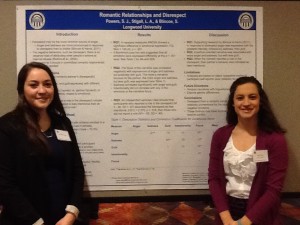The benefits of respectful treatment for individual well-being and group functioning has received a lot of attention (see for example, Huo & Binning, 2008; Tyler & Blader, 2003). Disrespect, though a common source of anger, and a frequent associated of aggression, has received little attention. My dissertation examined the effects of disrespect, defined as a lack of status and inclusion, on anger, sadness, and direct and indirect aggression. My current projects on disrespect are concentrated in three subareas:
- Research on disrespect has been conducted almost exclusively on adults. Using stories told by six- to- twelve- year olds, Allyson Yarsinske & Amanda Chappell studied the similarities with, and differences from, adult experiences of disrespect. They presented some of their findings at the 2016 Carolinas Psychology Conference. We are currently writing a paper that describes key event features (e.g., who, where), and consequences (i.e., behavioral, attitudinal, emotional) for the disrespected child.
- For negative behaviors, such as disrespect, there is an observer bias of attributing other people’s actions to internal causes. Logan Stigall and Samantha Powers have investigated attributional processes as they relate to romantic partner disrespect. Using the stories told by men and women in committed heterosexual relationships, they found associations between perceptions of intentionality and the intensity of anger, sadness, and guilt following disrespectful treatment by a romantic partner. They presented their research at the 2016 meeting of the Eastern Psychological Association.
